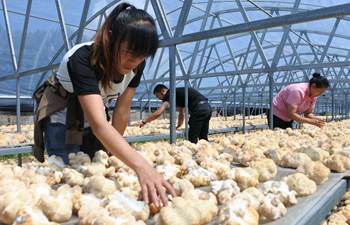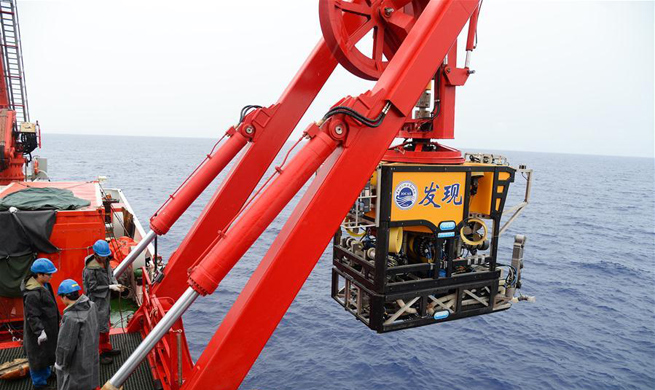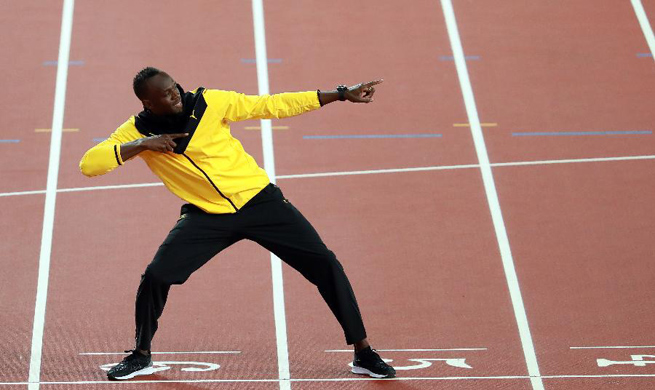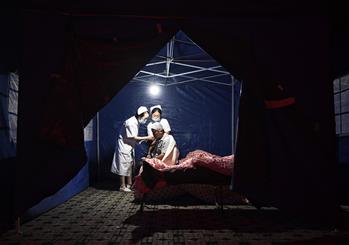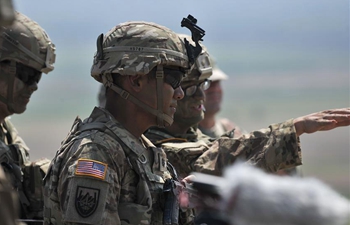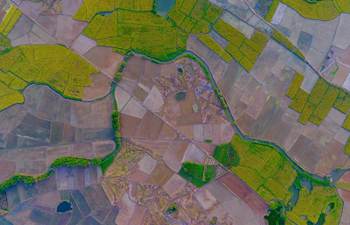OTTAWA, Aug. 14 (Xinhua) -- Canada will seek to modernize the North American Free Trade Agreement (NAFTA) labor standards, ease the cross-border movements of professionals, cut red tape and open up government procurement at the NAFTA renegotiations, which are to open in Washington D.C. from Aug. 16 to 20.
In a speech at University of Ottawa Monday, Canadian Foreign Affairs Minister Chrystia Freeland said Canada's free-trade agreement with the European Union is an example of the kind of "progressive" trade pact Canada wants to see in a new NAFTA.
The Canada-EU agreement, known as Comprehensive Economic and Trade Agreement (CETA) of Canada and the European Union, will come into effect from Sept. 21 this year.
CETA covers virtually all sectors and aspects of Canada-EU trade in order to eliminate or reduce barriers.
For example, prior to CETA's entry into force, only 25 percent of EU tariff lines on Canadian goods were duty-free. Upon CETA's entry into force, the EU will remove tariffs on 98 percent of its tariff lines.
Once CETA is fully implemented, the EU will have eliminated tariffs on 99 percent of its tariff lines.
Freeland said those progressive elements, including labor standards, were important to maintaining popular support for free markets.
"Canadians broadly support free trade. But their enthusiasm wavers when trade agreements put our workers at an unfair disadvantage because of the high standards that we rightly demand. Instead, we must pursue progressive trade agreements that are win-win, helping workers both at home and abroad to enjoy higher wages and better conditions," she added.
She pointed out that the renegotiations are an opportunity to cut red tape and harmonize regulations to "make life easier for business people on both sides of the border."
Freeland said the outlined goals include: creating a freer market for government procurement by pushing back against local-content provisions for major government contracts, maintaining Canada's traditional protections under NAFTA, which involves a dispute resolution system to ensure anti-dumping and countervailing duties are applied fairly, as well as an exception to preserve Canadian culture and Canada's system of supply management.
Freeland said she will travel to Washington Tuesday for meeting her U.S. and Mexican counterparts before the first round of formal negotiations is set to take place.
In the run-up to NAFTA talks, the Canada's Liberal government conducted a massive outreach to U.S. officials for more mutual importance of NAFTA to jobs and prosperity on both sides of the border.
Since Trump's inauguration in January, Canadian Prime Minister Justin Trudeau, cabinet ministers, parliamentary secretaries, provincial premiers and territorial ministers, parliamentary committees and other parliamentarians have made over 175 visits to the U.S. or engaged with senior officials in Canada, according to Canadian Ministry of Foreign Affairs.








